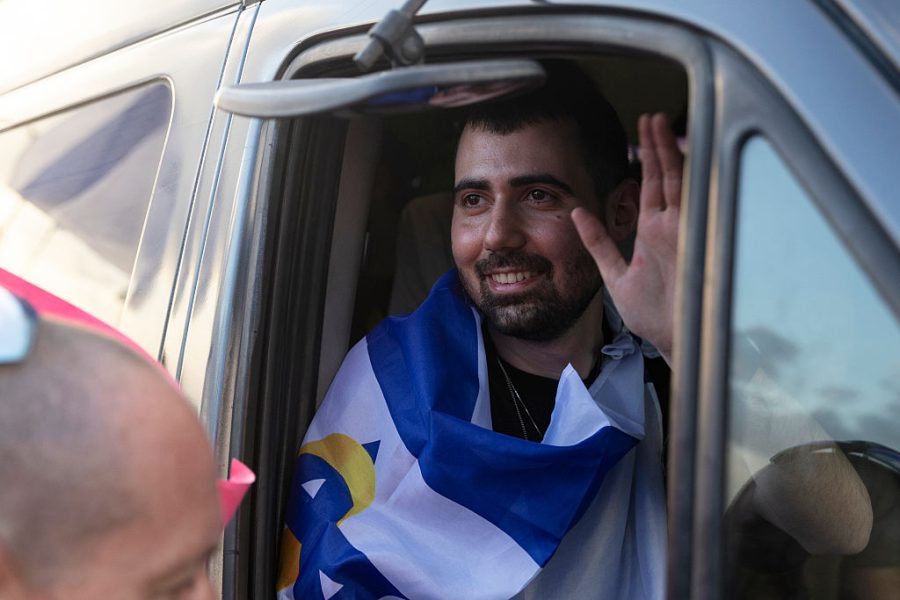Emerging from a pub after his campaign launch in Clacton yesterday afternoon, Nigel Farage was milkshaked. A 25-year-old woman has been charged with assault by beating and criminal damage. The incident has, quite rightly, been widely condemned. Farage’s Conservative opponent in Clacton, Giles Watling, tweeted that ‘every candidate has the right to campaign without fear of violence or intimidation’. Shadow home secretary Yvette Cooper called it a ‘disgrace’ and ‘completely unacceptable and wrong’. They were right to condemn the attack: this act of narcissistic nihilism is an affront to the democratic process, whatever side of the debate you are on.
Farage has done his best to shrug off the attack
So it has been disappointing to see that, since the news broke, some people have essentially suggested that Farage had it coming. In doing so, they have allowed their ill-concealed contempt for Farage and his politics to get in the way of the basic principles of a civilised democracy.
Take Sky News, where one correspondent informed viewers that the milkshaking had been ‘quite a humbling moment’ for the now leader of Reform UK. Really? There seems to be a rather unfortunate implication here: that by daring to stand for Parliament, Farage had been showing a pridefulness that in some sense earned him a soaking. The suggestion seems to be that politicians who challenge the establishment consensus really ought to know their place.
The correspondent continued in the same vein, adding that the incident was ‘a good reminder that [Farage] is a very divisive figure here in Clacton’. The Independent also adopted a worrying tone in its write-up, gloating that ‘the divisive right–winger was left covered in milkshake’.
I wonder how those ridiculing Farage would feel if they had a cup of unknown liquid hurled into their face in front of hundreds of people? The memory of Jo Cox and David Amess, MPs killed as they served their constituents, should really be enough to remind us that politicians’ safety is no laughing matter.
What’s worse is that we know that this kind of ‘he had it coming’ approach in the media extends to even more serious kinds of political violence. Last month, there was an assassination attempt against the prime minister of Slovakia, Robert Fico, who was shot five times as a public meet and greet. He was left fighting for his life.
Fico, like Farage, is a Eurosceptic populist, and in the wake of this shocking attack, media around the world were quick to point out that he was ‘polarising’ and that he had supposedly made ‘pro-Russian comments’. Sky News listeners learnt that Fico was ‘very divisive in Slovakia’ and ‘very divisive in the EU’, which apparently means ‘it’s not surprising that this sort of event might take place’. As Brendan O’Neill noted on Coffee House: ‘It is a shocking abdication of both journalistic objectivity and basic morality to see the attempted murder of a PM and think: “Well….”.
While Farage’s campaign has done its best to shrug off the attack, the incident has quite understandably affected the 60-year-old. Describing it to ITV News later over a pint, he said: ‘I don’t know what was thrown at me but it hit me in the face… [it was] quite frightening’.
Farage has been milkshaked before, back in 2019 while campaigning for the Brexit party. Asked why this kept happening to him, the veteran campaigner was at first able to use it to burnish his populist credentials: it’s because he, unlike Rishi Sunak, does ‘old-style street campaigning’.
Pressed further, however, and it was clear the incident had rattled him. This was only a milkshake but it could have been something more serious – is that something he thinks about? Farage sighs, visibly distressed: ‘It’s a very tough question to ask. I try not to.’







Comments